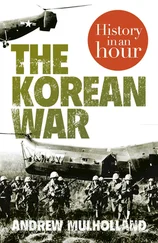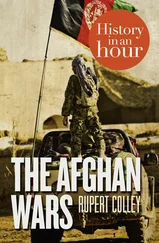1 ...7 8 9 11 12 13 ...18 The movement which Mohammed Ahmed created did not escape the common fate of human enterprise; nor was it long before the warm generous blood of a patriotic and religious revolt congealed into the dark clot of a military empire. With the expulsion or destruction of the foreign officials, soldiers, and traders, the racial element began to subside. The reason for its existence was removed. With the increasing disorders the social agitation dwindled; for communism pre-supposes wealth, and the wealth of the Soudan was greatly diminished. There remained only the fanatical fury which the belief in the divine mission of the Mahdi had excited; and as the necessity for a leader passed away, the belief in his sanctity grew weaker. But meanwhile a new force was making itself felt on the character of the revolt. The triumph no less than the plunder which had rewarded the Mahdi's victories had called into existence a military spirit distinct from the warlike passions of the tribesmen—the spirit of the professional soldier.
The siege of Khartoum was carried on while this new influence was taking the place of the original forces of revolt. There was a period when a neutral point was obtained and the Mahdist power languished. But the invasion of the Eastern Soudan by the British troops in the spring and the necessary advance of the relieving columns in the winter of 1884 revived the patriotic element. The tribes who had made a great effort to free themselves from foreign domination saw in the operations of Sir Gerald Graham and Lord Wolseley an attempt to bring them again under the yoke. The impulse which was given to the Mahdi's cause was sufficient to raise a fierce opposition to the invading forces. The delay in the despatch of the relief expedition had sealed the fate of Khartoum, and the fall of the town established the supremacy of the military spirit on which the Dervish Empire was afterwards founded.
All the warlike operations of Mohammedan peoples are characterised by fanaticism, but with this general reservation it may be said—that the Arabs who destroyed Yusef, who assaulted El Obeid, who annihilated Hicks fought in the glory of religious zeal; that the Arabs who opposed Graham, Earle, and Stewart fought in defence of the soil; and that the Arabs who were conquered by Kitchener fought in the pride of an army. Fanatics charged at Shekan; patriots at Abu Klea; warriors at Omdurman.
In order to describe conveniently the changing character of the revolt, I have anticipated the story and must revert to a period when the social and racial influences were already weakening and the military spirit was not yet grown strong. If the defeat of Yusef Pasha decided the whole people of the Soudan to rise in arms and strike for their liberties, the defeat of Hicks satisfied the British Government that those liberties were won. The powerful influence of the desire to rule prompted the Khedive's Ministers to make still further efforts to preserve their country's possessions. Had Egypt been left to herself, other desperate efforts would have been made. But the British Government had finally abandoned the policy of non-interference with Egyptian action in the Soudan. They 'advised' its abandonment. The protests of Sherif Pasha provoked Lord Granville to explain the meaning of the word 'advice.' The Khedive bowed to superior authority. The Minister resigned. The policy of evacuation was firmly adopted. 'Let us,' said the Ministers, 'collect the garrisons and come away.' It was simple to decide on the course to be pursued, but almost impossible to follow it. Several of the Egyptian garrisons, as in Darfur and El Obeid, had already fallen. The others were either besieged, like Sennar, Tokar, and Sinkat, or cut off from the north, as in the case of the Equatorial Province, by the area of rebellion. The capital of the Soudan was, however, as yet unmolested; and as its Egyptian population exceeded the aggregate of the provincial towns, the first task of the Egyptian Government was obvious.
Mr. Gladstone's Administration had repressed the revolt of Arabi Pasha. Through their policy the British were in armed occupation of Egypt. British officers were reorganising the army. A British official supervised the finances. A British plenipotentiary 'advised' the re-established Tewfik. A British fleet lay attentive before the ruins of Alexandria, and it was evident that Great Britain could annex the country in name as well as in fact. But Imperialism was not the object of the Radical Cabinet. Their aim was philanthropic and disinterested. As they were now determined that the Egyptians should evacuate the Soudan, so they had always been resolved that the British should evacuate Egypt.
Throughout this chapter it will be seen that the desire to get out of the country at once is the keynote of the British policy. Every act, whether of war or administration, is intended to be final. Every despatch is directed to breaking the connection between the two countries and winding up the severed strings. But responsibilities which had been lightly assumed clung like the shirt of Nessus. The ordinary practice of civilised nations demanded that some attempt should be made to justify interference by reorganisation. The British Government watched therefore with anxious solicitude the efforts of Egypt to evacuate the Soudan and bring the garrisons safely home. They utterly declined to assist with military force, but they were generous with their advice. Everybody at that time distrusted the capacities of the Egyptians, and it was thought the evacuation might be accomplished if it were entrusted to stronger and more honest men than were bred by the banks of the Nile. The Ministers looked about them, wondering how they could assist the Egyptian Government without risk or expense to themselves, and in an evil hour for their fame and fortunes someone whispered the word 'Gordon.' Forthwith they proceeded to telegraph to Cairo: 'Would General Charles Gordon be of any use to you or to the Egyptian Government; and, if so, in what capacity'? The Egyptian Government replied through Sir Evelyn Baring that as the movement in the Soudan was partly religious they were 'very much averse' from the appointment of a Christian in high command. The eyes of all those who possessed local knowledge were turned to a different person. There was one man who might stem the tide of Mahdism, who might perhaps restore the falling dominion of Egypt, who might at least save the garrisons of the Soudan. In their necessity and distress the Khedivial advisers and the British plenipotentiary looked as a desperate remedy to the man whose liberty they had curtailed, whose property they had confiscated, and whose son they had executed—Zubehr Pasha.
This was the agent for whom the Government of Egypt hankered. The idea was supported by all who were acquainted with the local conditions. A week after Sir Evelyn Baring had declined General Gordon's services he wrote: 'Whatever may be Zubehr's faults, he is said to be a man of great energy and resolution. The Egyptian Government considers that his services may be very useful.... Baker Pasha is anxious to avail himself of Zubehr Pasha's services.'(Sir Evelyn Baring, letter of December 9, 1883.) It is certain that had the Egyptian Government been a free agent, Zubehr would have been sent to the Soudan as its Sultan, and assisted by arms, money, and perhaps by men, to make head against the Mahdi. It is probable that at this particular period the Mahdi would have collapsed before a man whose fame was nearly equal to, and whose resources would have been much greater than, his own. But the British Ministry would countenance no dealings with such a man. They scouted the idea of Zubehr, and by so doing increased their obligation to suggest an alternative. Zubehr being rejected, Gordon remained. It is scarcely possible to conceive a greater contrast than that which these two men presented. It was a leap from the Equator to the North Pole.
Читать дальше












